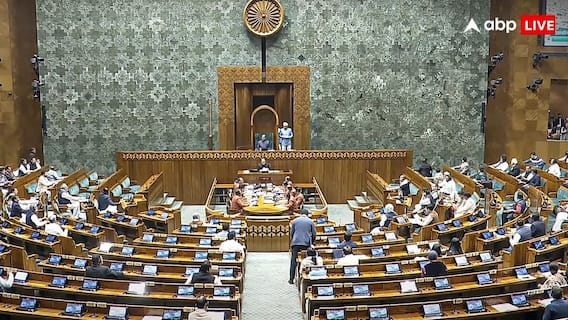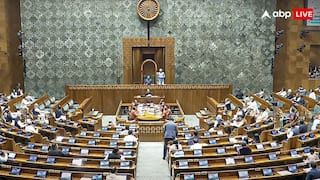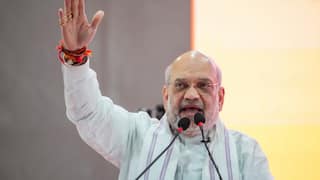Six Months After Reopening Kabul Embassy, India Focusing Only On ‘Humanitarian Assistance’, Concerned Over Women’s Condition
India reopened its Embassy in Kabul in June 2022 in an effort to carry out humanitarian aid there. But the Taliban want New Delhi to start investing and resume the stalled projects.

New Delhi: Six months after reopening the embassy in Kabul, India is focussing only on the distribution of humanitarian aid there for the Afghan people, who are reeling under a collapsed economy despite pressure from the Taliban government there to restart some of key infrastructure projects there that got stalled, ABP Live has learnt.
The interim Taliban government of Kabul, led by ‘Emir’ Haibatullah Akhundzada, has been urging New Delhi to bring in more investments even as it wants greater participation by India industry there and kickstart some of the stalled projects that will help in their economy, sources told ABP Live.
However, according to the sources, India is in “no rush” to start work on any of the projects and “playing it safe” there, considering the rapidly deteriorating security situation there and state of Afghan citizens and the failure of the Taliban to form an inclusive government.
India also believes that resumption of the projects there will tantamount to recognition of the Taliban, which has not been adhering to the commitments it made to the international community, the sources said.
Some of the key projects that India was running there before the Taliban took over the country in August 2021 were mostly related to the power and education sectors, particularly skill development.
Last month, the Ministry of Urban Development and Housing (MUDH) of Afghanistan reportedly said that India has “expressed interest” in restarting 20 small and large projects there across the length and breadth of the war-torn country.
This was discussed apparently in a meeting between Bharat Kumar, who is heading the Indian Embassy there and the Taliban Minister of Urban Development and Housing (MUDH), Hamdullah Nomani.
"Projects that were implemented during the former government but were delayed due to political changes or other issues--they are now interested in resuming these projects," said Mohammad Kamal Afghan, a spokesman for the MUDH.
But it seems India is still weighing the options and will not be resuming the projects there.
Responding to a question by ABP Live, Arindam Bagchi, spokesperson, Ministry of External Affairs said Thursday, “This is a technical team (in the Indian Embassy in Kabul) with a task largely focussed on humanitarian assistance that we provide to the people of Afghanistan … I am not aware of any new particular project that has started there. But in humanitarian assistance that we continue to extend to the people of Afghanistan, yes our team is involved in that.”
The Embassy, sources said, has also not started the process of issuing visas to Afghan citizens there who are keen on coming to India, including students and patients.
ALSO READ | Russia Vows To 'Knock Down' Patriot Missile System, Says US Doesn't Want To End War
In June 2022, India reopened the Embassy in Kabul after it shut down the mission post the take over Afghanistan by the Taliban in August 2021 and the collapse of the former democratic government.
Before the Taliban takeover there India was the largest development partner of Afghanistan in South Asia. India had built several largescale projects there from the parliament building to Afghan-India Friendship Dam (Salma Dam), construction of a Decentralised Waste Water Treatment System at Indira Gandhi Institute of Child Health (IGICH) and establishment of Afghan National Agriculture Science and Technology University, Kandahar, among others.
The Taliban government is now also focussing on strengthening the railway linkages there that completely got destroyed due to the 20-year-long war there. The Taliban recently said it has “intensified efforts to launch the Trans-Afghan railway line connecting Termez-Mazar-e-Sharif-Kabul–Peshawar.”
‘India concerned over condition of Afghan women’
On Thursday, India expressed “concerns” over the Taliban government’s decision to ban university education for Afghan girls there, two days after the decree was issued.
“We have noted with concern the reports in this regard. India has consistently supported the cause of female education in Afghanistan. We have emphasized the importance of the establishment of an inclusive and representative government that respects the rights of all Afghans and ensures the equal rights of women and girls to participate in all aspects of Afghan society, including access to higher education,” said Bagchi.
“I would also recall UN Security Council Resolution 2593, which reaffirms the importance of upholding human rights including those of women, and also calls for full, equal and meaningful participation of women,” he added.
Trending News
Top Headlines






































